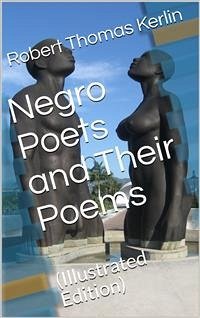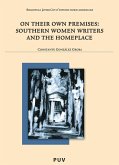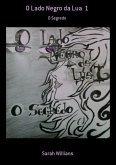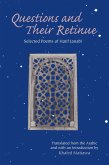PREFACE
Ad astra per aspera—that is the old Roman adage. Magnificent is it, and magnificently is it being in these days exemplified by the American Negroes, particularly by the increasing number of educated and talented American Negroes, and most particularly by those who feel the urge to express in song the emotions and aspirations of their people. A surprisingly large number is this class. Without exhausting the possibilities of selection I have quoted in this anthology of contemporary Negro poetry sixty odd writers of tolerable verse that exhibits, besides form, at least one fundamental quality of poetry, namely, passion.
The mere number, large as it is, would of course not signify by itself. Nor does the phrase “tolerable verse,” cautiously chosen, seem to promise much. What this multitude means, and whether the verse be worthy of a more complimentary description, I leave to the reader’s judgment. Quality of expression and character of content are of course the prepotent considerations.
While, in a preliminary section, I have passed in review the poetry of the Negro up to and including Dunbar, not neglecting the old religious songs of the plantation, or “Spirituals,” and the dance, play, and nursery rhymes, or “Seculars,” yet strictly speaking this is a representation of new Negro voices, an anthology of present-day Negro verse, with biographical items and critical, or at least appreciative comment.
Ad astra per aspera—that is the old Roman adage. Magnificent is it, and magnificently is it being in these days exemplified by the American Negroes, particularly by the increasing number of educated and talented American Negroes, and most particularly by those who feel the urge to express in song the emotions and aspirations of their people. A surprisingly large number is this class. Without exhausting the possibilities of selection I have quoted in this anthology of contemporary Negro poetry sixty odd writers of tolerable verse that exhibits, besides form, at least one fundamental quality of poetry, namely, passion.
The mere number, large as it is, would of course not signify by itself. Nor does the phrase “tolerable verse,” cautiously chosen, seem to promise much. What this multitude means, and whether the verse be worthy of a more complimentary description, I leave to the reader’s judgment. Quality of expression and character of content are of course the prepotent considerations.
While, in a preliminary section, I have passed in review the poetry of the Negro up to and including Dunbar, not neglecting the old religious songs of the plantation, or “Spirituals,” and the dance, play, and nursery rhymes, or “Seculars,” yet strictly speaking this is a representation of new Negro voices, an anthology of present-day Negro verse, with biographical items and critical, or at least appreciative comment.









